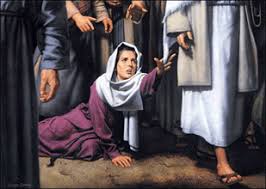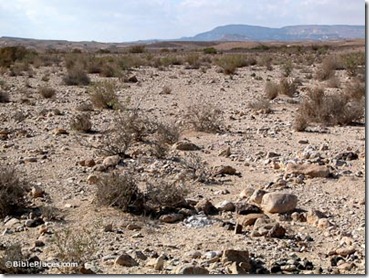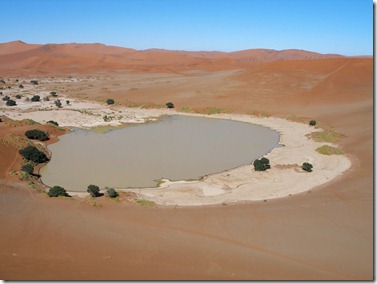A Guest Blog by Dr. Abigail E. Reynolds
Mark 5:21-43
When Jesus had crossed again in the boat to the other side, a great crowd gathered around him; and he was by the sea. Then one of the leaders of the synagogue named Jairus came and, when he saw him, fell at his feet and begged him repeatedly, “My little daughter is at the point of death. Come and lay your hands on her, so that she may be made well, and live.” He went with him.
And a large crowd followed him and pressed in on him. Now there was a woman who had been suffering from hemorrhages for twelve years. She had endured much under many physicians, and had spent all that she had; and she was no better, but rather grew worse. She had heard about Jesus, and came up behind him in the crowd and touched his cloak, for she said, “If I but touch his clothes, I will be made well.” Immediately her hemorrhage stopped; and she felt in her body that she was healed of her disease. Immediately aware that power had gone forth from him, Jesus turned about in the crowd and said, “Who touched my clothes?” And his disciples said to him, “You see the crowd pressing in on you; how can you say, `Who touched me?'” He looked all around to see who had done it. But the woman, knowing what had happened to her, came in fear and trembling, fell down before him, and told him the whole truth. He said to her, “Daughter, your faith has made you well; go in peace, and be healed of your disease.”
and had spent all that she had; and she was no better, but rather grew worse. She had heard about Jesus, and came up behind him in the crowd and touched his cloak, for she said, “If I but touch his clothes, I will be made well.” Immediately her hemorrhage stopped; and she felt in her body that she was healed of her disease. Immediately aware that power had gone forth from him, Jesus turned about in the crowd and said, “Who touched my clothes?” And his disciples said to him, “You see the crowd pressing in on you; how can you say, `Who touched me?'” He looked all around to see who had done it. But the woman, knowing what had happened to her, came in fear and trembling, fell down before him, and told him the whole truth. He said to her, “Daughter, your faith has made you well; go in peace, and be healed of your disease.”
While he was still speaking, some people came from the leader’s house to say, “Your daughter is dead. Why trouble the teacher any further?” But overhearing what they said, Jesus said to the leader of the synagogue, “Do not fear, only believe.” He allowed no one to follow him except Peter, James, and John, the brother of James. When they came to the house of the leader of the synagogue, he saw a commotion, people weeping and wailing loudly. When he had entered, he said to them, “Why do you make a commotion and weep? The child is not dead but sleeping.” And they laughed at him. Then he put them all outside, and took the child’s father and mother and those who were with him, and went in where the child was. He took her by the hand and said to her, “Talitha cum,” which means, “Little girl, get up!” And immediately the girl got up and began to walk about (she was twelve years of age). At this they were overcome with amazement. He strictly ordered them that no one should know this, and told them to give her something to eat.
Have you ever been desperate? Have you ever been so in need that you would go against everything you believe to be true, every social norm, and travel to the ends of the world, to get the help you needed? In Mark’s Gospel, we find two people in this position on the same day.
The first one is a religious leader. He is known as Jairus, and Mark tells us he is a Leader in the Synagogue.
He is considered a holy man of God. A powerful figure in the community. He is one who will obey the Law of God to the smallest degree. Nothing could possibly cause him to violate his standards of holiness, or belief.
He will always pray at the beginning of the day and at the end, plus at prescribed times throughout the day. No work for him on the Sabbath. His tithe is down to the last penny. He will engage in ceremonial cleansing before eating and say all the appropriate prayers.
He will follow the Torah with attention to every detail. And this can not be questioned. He will not become unclean before God according to his religion, tradition, and powerful position. Until…
The second desperate person is a woman. An unclean woman by the standards of her day. She remains nameless to us.
She suffers from a chronic hemorrhage that has left her penniless because of all the medical bills and treatments that have yielded no cure. She is an outcast of society because of her bleeding.
By the custom and laws of her day, she is not allowed to even enter the city, or be around people without crying out “unclean”. She may not enter the synagogue. She may not offer sacrifices because of her hemorrhage. She may not touch anyone else less they too be rendered “unclean” and forced to go through a cleansing ritual that involves prayer, sacrifice, and money.
Yet she is here, in the crowd, seeking healing from one who promises life. She cannot possibly address him, a Rabbi, a Teacher of the Law, a man She could not really expect Him to see her, speak to her, heal her. And yet…
Jesus, is first approached by Jairus, who is desperate for someone, anyone, who can heal, and save his daughter whom he loves. Jesus has already been confronted by these religious leaders. How can Jairus, who may even be one of those who have challenged Jesus, come now? But he does.
He comes with a single request. Come home with me and heal my daughter. He pleads and begs with Jesus. Jesus says yes and goes.
On the way, the woman, standing off from the crowd, sees this Rabbi named Jesus and knows in her heart he can heal her, if only…
If only she could touch the hem of his garment. She thinks to herself, “No one will even know. Then I will be well, and be welcomed back into my community and home. If I can only get close enough”, she thinks.
And then, at just the right moment, she reaches through the passing throng of people, through the mass of feet and legs, and just barely manages to reach and touch the hem of Jesus’ garment as He passes by.
She is suddenly free. She is well. She knows it. She is rejoicing in her heart and thanking God, and she got away with it. No one knew except her. Until…
Jesus stops, turns and asked who touched me. The disciples said, who knows, there are too many pushing against you. But Jesus knew who it was. The question is, would she step forward? And if she dose, what will Jesus do? Will he take back the healing for having violated the law? Will he condemn her or expose her to the ridicule of the crowd?
Tentatively, in great humility, she comes forward. “I did it”, she says.
With tenderness and compassion, Jesus calls her Daughter, and tells her, “your faith has made you whole. Go in Peace.”
With that Jesus is off once again with Jairus.
Jairus should have stopped him right then and there. Jesus was now unclean because a woman, and no less a woman who had an issue of blood, had touched him. He was now considered by the law to be unclean and unworthy to enter a home or synagogue without going through a ceremonial cleansing.
If Jesus touches anyone else, they too are unclean, and must go through the ritual to be cleansed.
But for Jairus, the situation is too dire to worry about the law now. Every second is precious as he leads Jesus to his home and his sick child.
They enter the home. There is wailing and crying and they say that the girl is dead. No further need of the Teacher, the Rabbi. When Jesus suggest otherwise, their sorrow turns to ridicule of this one called Jesus.
Jesus throws the company out and takes the parents, along with his close disciples into the child’s room. He tells her to get up. And even in death, she obeys and begins to walk around the room.
We can picture this 12 year old girl. She is probably excited to see her parents, And who are these strange men in her room. She most likely looked at Jesus, and with a smile and wink, they acknowledge each other and what has just happened.
“Give her something to eat”, Jesus tells them.
Jesus once again demonstrates the love of the Father. The unclean, the outcast, the marginal of society, the wealthy, the prominent, anyone with need, is cared for by the Father, and named His child. He called the woman on this story Daughter, with a capital D. And He shows us that just as a earthly Father will go to whatever ends he must to save his daughter, our heavenly Father will also do, even to the point of death and the grave.
Allow me now to ask each of you. What is your desperation? What is your greatest need today? How far are you willing to go to find God and engage the possibilities He has for you? And you might ask, how far is God willing to go?
Jesus reached beyond the laws and religious beliefs of his day to care for those in need. No one was unclean to Jesus. No one was below his engaging. No one had sinned too great for his care and compassion, and forgiveness.
Jesus loved the worst of sinners and ate with them. He healed the outcast and invited them to follow him. He welcomed the women, and called them friends and daughters. The very ones who would never have been invited to sit at a table to eat with the religious leaders, were welcomed to his table. Tax collectors, prostitutes, lepers, fishermen, and yes, women.
How far is God willing to go? To the ends of the earth, the depths of despair, even into the heart of suffering and death to find, heal, and claim you for himself. Why will God do this? For one, very simple reason, God loves you so very much, more than you can ever imagine or dream. God will go to any length to claim you for His own, because God loves you.
Jairus had to go where Jesus was. And Jesus was with those society had no use for. The woman had to go where she risked even death should she be discovered, to connect with the one who could give her life.
We know how far God will go. God will go to the ends of His love for you. Now the question is, how far are you willing to go to encounter the love of God that Jesus offers?
And now Father Steven, in the words of Jesus, Give your sons and daughters something to eat. Give them the bread of life.












